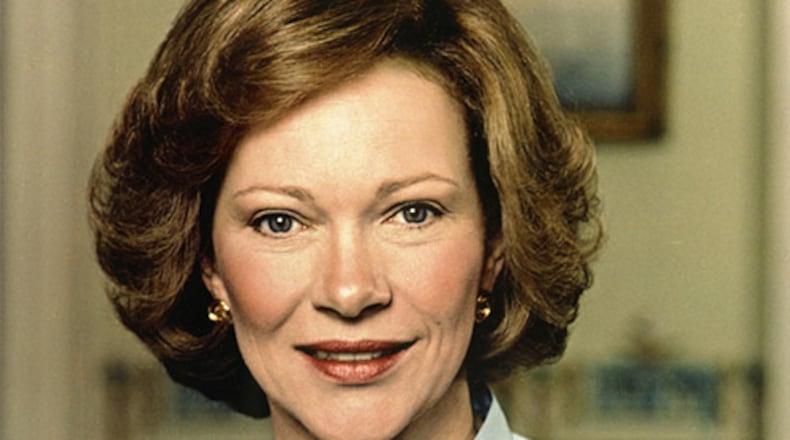Rosalynn Carter, wife of former President Jimmy Carter, has entered home hospice care.
The announcement comes almost nine months to the day that the family announced that President Carter, her husband of 77 years, had gone into home hospice.
“Rosalynn Carter has entered hospice care at home,” the Atlanta-based Carter Center said Friday. “She and President Carter are spending time with each other and their family.”
The family asked for privacy amid the “outpouring of love and support.”
Sen. Raphael Warnock, who is also the pastor of Ebenezer Baptist Church, where the Carters occasionally attend virtually, offered prayers to the family.
“First Lady Rosalynn Carter is a remarkable woman of great faith, and her service to Georgia and our country is part of an incredible legacy,” Warnock said in a statement. “My prayers are with her, President Carter, and the entire Carter family during this tender time.”
This past May, the Carter family announced that Rosalynn Carter, 96, was battling dementia. Jimmy Carter, 99, is the longest-living president in U.S. history. The couple have been married longer than any other first couple.
They live together in Plains, Georgia, the rural town where they were born, about 150 miles south of Atlanta.
Hospice care is typically intended for those who most likely have six months or less to live, and the focus shifts to making patients comfortable rather than curing an illness. Experts say it’s not unusual for some patients to far exceed that timeline, as has been the case with President Carter.
President Carter has had his own medical issues in recent years.
In 2015, he survived a melanoma diagnosis that later spread to his brain. The discovery followed the removal of a lesion on his liver that took about 10% of the organ. He also suffered several falls in 2019, including one requiring 14 stitches, and other health scares that have required hospitalization.
The couple has lived in the same house since 1961, except for their time in the governor’s mansion and the White House. Family and very close friends are regular visitors. Until the Atlanta Braves were eliminated in the playoffs last month, baseball games were often on the television.
Public sightings have become rare. This is why their brief but memorable ride through the town’s annual peanut festival in September was so special to those who witnessed them fly by in a black Chevy SUV.
A month earlier, Rosalynn Carter quietly marked her 96th birthday with her husband and family, celebrating with cupcakes and peanut butter ice cream.
Rosalynn Carter’s dementia diagnosis this spring came after a lifetime of advocating to address mental health issues and to remove the stigma around related illnesses. That was partly why her announcement came in May during Mental Health Awareness Month.
“The family made the decision to announce this now, and it aligned with her lifetime of selfless work,” Carter Center CEO Paige Alexander said at the time. “They wanted to do this now to tell her story and to lead the conversation about dementia and what caregiving means.”
Dementia, according to the Alzheimer’s Association, is not a single disease, but rather an overall term that covers a wide range of specific medical conditions, including Alzheimer’s disease, caused by abnormal brain changes.
The Centers for Disease Control and Prevention estimated that in 2014 there were at least 5 million Americans over the age of 65 who had dementia. That number is expected to skyrocket to about 14 million by 2060.
In her personal and public narrative, Rosalynn Carter often talked about how when her husband was running for governor in 1970 she would often run into people whose families were dealing with some form of mental illness or facing difficulties in trying to find care for family members.
Credit: Jimmy Carter Library
Credit: Jimmy Carter Library
With that, she became a high-profile advocate for mental health during her husband’s presidency from 1977 to 1981 and during their subsequent work at the nonprofit Carter Center, making it one of her lasting legacies.
Her Mental Health Program at the Carter Center has hosted an annual symposium of national mental health leaders to form policy. It also has created a journalism fellowship program to encourage accurate reporting about mental health issues. In 2010, she wrote the book, “Within Our Reach: Ending the Mental Health Crisis.”
About the Author
Keep Reading
The Latest
Featured






